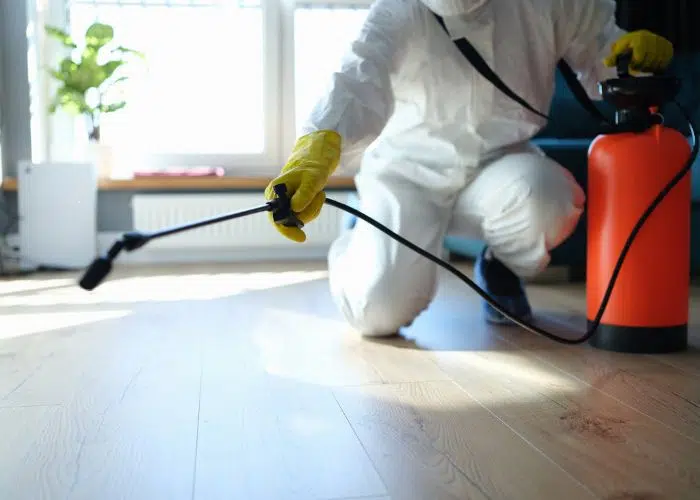
As temperatures drop and winter looms, rodents like mice, rats, and squirrels start searching for warm and cozy places to settle in. Unfortunately, your home could be their perfect destination. If you’re not proactive, you may share your space with unwanted furry guests this season. That’s why taking action and rodent proofing your home before the cold weather sets in is essential.
In this blog, we’ll explore how to prevent rodents in winter, provide practical winter rodent prevention tips, and guide you through effective rodent control before winter arrives.
Why Winter Is Prime Time for Rodents
Rodents are opportunistic creatures. As winter arrives your Home readily serves as a location that rodents search for refuge and sustenance and nesting grounds. Every aspect rodents need to live and breed can be found in attic spaces, basements, crawl spaces and kitchen pantries. The presence of rodents brings more than just inconvenience since they create severe health problems and affect building infrastructure. Rodents attack entire categories of objects such as electrical wiring in addition to insulation and wood and pipes. This makes rodent-proofing your home more than just a comfort—it’s necessary.
1. Seal All Entry Points
Rodents can squeeze through surprisingly small openings—mice can enter through holes as tiny as a dime. One of the most critical steps in rodent control before winter is inspecting your home thoroughly for gaps, cracks, and holes.
Where to Check:
- Around windows and doors
- Rooflines and eaves
- Crawl spaces and attic vents
- Utility and plumbing entrances
- Foundation cracks
Seal any openings with caulk, steel wool, or metal mesh. Remember: foam sealants alone may not deter rodents, as they can chew through them.
2. Keep Your Home Clean and Clutter-Free
Rodents are always looking for food and nesting materials. Keeping your home clean and organized is fundamental to winter rodent prevention tips.
Tips:
- Store food in airtight containers.
- Clean up crumbs and spills immediately.
- Empty garbage cans regularly.
- Remove clutter like newspapers, cardboard boxes, and unused clothes that rodents can use to build nests.
3. Trim Trees and Shrubs Near Your Home
Rodents, especially roof rats and squirrels, can climb trees and jump onto your roof. From there, they can enter your attic or crawl space.
How to prevent rodents in winter by landscaping:
- Trim tree branches at least 3 feet away from your Home.
- Cut back overgrown shrubs and vines that provide shelter or pathways to entry points.
- Keep your lawn and garden free of debris and fallen fruit.
4. Secure Your Attic and Basement
Attics and basements are warm, quiet, and often undisturbed—perfect for rodent nests. Inspect these areas thoroughly during your rodent control before winter preparations.
Checklist:
- Seal gaps around vents and chimneys with mesh or hardware cloth.
- Install screens over attic vents.
- Check insulation and wiring for signs of chewing or nesting.
- Use motion-activated lights or ultrasonic repellents to deter rodents.
5. Keep Firewood and Outdoor Storage Away from the Home
Stacked firewood and outdoor storage areas like sheds or garages offer rodent shelter. To rodent-proof your home, be mindful of your exterior setup.
Best practices:
- Store firewood at least 20 feet from your Home and 5 inches off the ground.
- Keep storage areas clean and organized.
- Regularly inspect garages and sheds for rodent activity.
6. Install Door Sweeps and Weather Stripping
Rodents often enter homes through gaps under doors. Installing door sweeps and weather stripping is a simple yet effective winter rodent prevention tip.
Where to install:
- Garage doors
- Entry doors
- Basement access points
This prevents rodent entry and helps with energy efficiency during the winter months.
7. Use Traps and Baits Strategically
Even with prevention efforts, it is wise to set traps and bait stations in high-risk areas like attics, basements, or behind appliances. This is a backup method in case a rodent finds its way inside.
Choose from:
- Snap traps
- Glue traps
- Bait stations (in tamper-proof containers for safety)
If you suspect an infestation, it’s best to consult professionals like those at Pest Control Clearwater to ensure the issue is dealt with effectively and humanely.
8. Schedule a Professional Inspection
The most foolproof way to rodent-proof your Home is to get a professional inspection. Experts can identify hidden entry points and early signs of infestation that you may overlook.
For homeowners in Florida, partnering with local specialists in rodent control in Pinellas County ensures you’re working with people who understand the seasonal behavior of rodents specific to the region.
Professional services include:
- Detailed home inspections
- Sealing and exclusion services
- Safe and eco-friendly rodent removal
- Ongoing monitoring and prevention plans
Signs You May Already Have Rodents
While preparing for winter is crucial, it’s equally important to spot existing infestations early. Watch out for these common signs:
- Droppings near food or under sinks
- Gnawed packaging or wires
- Strange noises (scratching or scurrying) in walls or ceilings
- Nests made from shredded paper or fabric
- Unusual pet behavior (dogs or cats sniffing intensely at baseboards or furniture)
If you notice any of these, act fast. The sooner you take action, the easier it is to control the problem.
Final Thoughts: Make Rodent Control a Winter Priority
Rodents may be small, but the problems they bring are anything but. Taking the time now to rodent-proof your home can save you money, hassle, and stress later. By following these winter rodent prevention tips and investing in reliable control before winter, you’re protecting your Home, health, and peace of mind.
Whether you’re tackling prevention on your own or need professional help, the Pest Control Clearwater and Rodent Control Pinellas County team is ready to assist. Don’t wait until rodents are already in your attic—start your prevention strategy today and enjoy a rodent-free winter.
